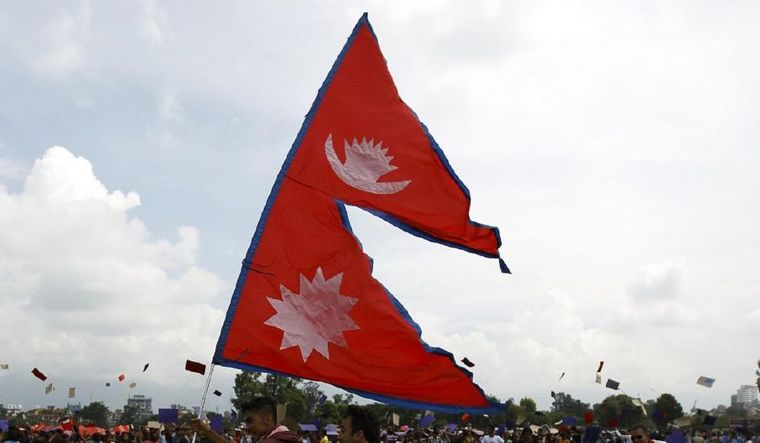Cable operators in Nepal stopped airing Indian television news channels on Thursday evening, ending a day of nationwide agitation against Indian media reportage on Nepal. Only Doordarshan is still available in Nepali cable networks.
While the decision has been taken by the operators who distribute foreign TV channels, and not the government, senior politicians across the political swathe have come together to criticise reporting by a certain section of the media on Nepal in general and Prime Minister K.P. Sharma Oli in particular.
Earlier in the day, government spokesperson Yubaraj Khatiwada had said at a press address that the government would seek political and legal remedies against Indian media for disseminating news that jeopardises the nation, nationality, sovereignty and self respect of Nepalis. He, however, said that the government of Nepal did not want to enforce a ban [on Indian media], but wanted it to be disciplined and disseminate only “accurate news''.
Bishnu Rimal, chief advisor to the PM of Nepal, tweeted: “The news stories and comments coming from the Indian media against the government and Prime Minister of Nepal are highly objectionable, thus condemnable. Such reports do not care about the basic ethics of journalism. The malicious intent inherent in such reports will only damage the age-old friendly ties existing between our two countries and peoples.''
Rajan Bhattarai, Oli's foreign affairs advisor, said that the reportage had changed ever since Nepal had amended its Constitution to legalise a new map. The new map includes sovereign territory of India. Bhattarai tweeted: “The news coming from Indian media against our PM and government after publication of new map is condemnable. We completely reject their fabricated and fake reports. We urge them to respect Nepali government and people's unified position on our sovereignty and national independence.
N.K. Shreshtha Prakash, spokesperson of the ruling Nepal Communist Party (NCP), had tweeted that Indian media's unbridled propaganda about our government and PMC has gone to extremes, while Bishnu Rijal, deputy chief of foreign affairs in the NCP, tweeted: “Some sections of Indian media are very inaccurate, insensitive, irresponsible and provocative on Nepal matter. It's very objectionable to publish defamatory and baseless news about our PM. I urged Government of Nepal to strengthen regulatory mechanism to prevent such hypothetical matter”.
Even the opposition joined in. Kamal Thapa of the Rashtriya Prajatantra Party tweeted: “We have serious differences with the PM on many issues including his conduct of international relations. But deliberate/sustained campaign of mudslinging against PM Oli by some Indian media cannot be acceptable. That doesn't do Nepal-India relations any good”.
None of the leaders said it in as many words that the anger is against reports of Chinese ambassador to Kathmandu, Hou Yanqi, who has openly been meeting with warring factions of the NCP, which might just head for a split. She is also reportedly meeting with leaders of opposition parties in Nepal.
Nepal's political scenario is in turmoil right now, with members within the NCP divided in support of Oli, who holds two posts—the PM seat and co-chair of the party. His adversary Pushpa Kamal Dalal Prachanda, along with many senior leaders, has demanded Oli's resignation from both posts for his “inability” in ruling the country, and also for “jeopardising” relations with India by alleging that India was hatching a plot to oust Oli.
India has refused to be drawn into the happenings in Kathmandu. Anurag Srivastava, spokesperson of the Ministry of External Affairs, said it was Nepal's internal matter, when asked to comment on Yanqi's outreach, and whether it breached diplomatic code of conduct.
The Nepal government had cleared an Act last year, called the clean feed policy, by which foreign channels stood to lose airing rights in Nepal if they were unable to provide ad free programming. The act has not yet been implemented, though Oli has made recent moves to activate the policy. The policy is not targeted against India alone, but all foreign channels, and seeks to protect the country's emerging television industry. However, Indian channels, especially Hindi channels, are extremely popular in Nepal. The ban by the cable operators is only on news channels, and not the entertainment ones.



